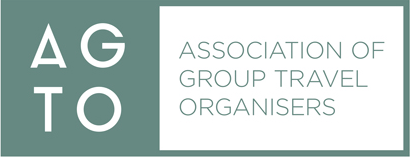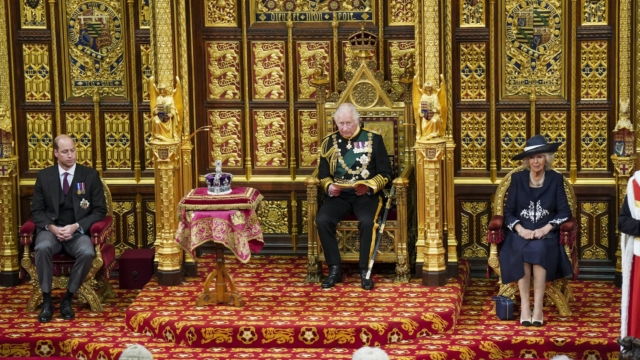COVID-19 Update 22nd March 2021
- Events Research Programme ToR
The terms of reference for the Events Research Programme have been published. This is one of the four reviews announced alongside the Roadmap and is being undertaken to support the opening of large scale events. The objective of the research programme is to oversee a range of pilot events in Spring/Summer which will build evidence on the risks associated with Covid-19 transmission routes, the characteristics of events and surrounding activities, and the extent to which mitigation measures can effectively address these risks. The evidence from these pilot events will be used to inform the government’s decision around Step 4 of the roadmap and will shape government policy to bring about the phased return of fuller audiences to venues and events up and down England.
- Destination Management Organisations Consultation Launched
The DMO consultation has been launched. The main questions in the consultation are:
-
- What do you feel works well overall about the current ways in which DMOs are structured and operate in England?
- what do you think could work differently or could be improved about how DMOs are structured and operate in England?
- Why should there be DMOs?
- What should DMOs do to be at their best?
- Who and/or what do you think benefits from the work DMOs carry out?
- What examples do you have of DMOs demonstrating their value and/or Returns on Investment to stakeholders?
- What views do you have about the ways in which DMOs are funded currently, and how this could change?
- What views do you have about the ways in which individual DMOs are structured currently, and how this could change?
- What do you think works well about how DMOs work with:
- a) other DMOs;
b) local/regional tourism businesses; and
c) other relevant sectors currently, and what could work better?
-
- What do you think works well about how DMOs work with other local structures (e.g. local authorities, local enterprise partnerships, mayoral combined authorities, universities, etc), and what could work better?
- What do you think works well about how DMOs currently work with the British Tourist Authority (VisitBritain/VisitEngland), and how could this work better?
- What do you think works well about how DMOs currently work to support business visits and events, and how could this work better?
- How do you think DMOs can best support government priorities, both locally and nationally?
- What lessons do you think can be learned from other historical and/or international models for structuring and/or funding DMOs?
- How can DMOs best support the recovery and rebuilding of the tourism sector over the next year both in terms of leisure and business tourism, following the COVID-19 pandemic?
- What risks do you see for the potential for DMOs to support the recovery and rebuilding of the tourism sector, again both in terms of leisure and business tourism, over the next year?
- What do you see as the biggest opportunities for DMOs over the next ten years?
- And what do you see as the biggest challenges for DMOs over the next ten years?
- What one thing do you think could be done to ensure the financial and organisational sustainability of DMOs over the next ten years?
The consultation will close on Wednesday 28th April and submissions can be make through the Online Survey on the following link
This is a very important consultation for the future of sub-national tourism support and development, so I’m in the process of organising a seminar on this for Tourism Alliance members in the week of 19th April and will send round more details on this next week.
- Business Adaptation to Coronavirus
ONS has produced data on how businesses have adapted to lockdowns during the pandemic by finding ways to continue trading in some form. The data show that the number of businesses that have closed completely during the current lockdown is considerably lower than during the first lockdown last year. For example
-
- 54% of food service and accommodation businesses are currently closed compared to 81% in the first lockdown
- 56% of arts. entertainment and recreation businesses are currently closed compared to 82% in the first lockdown
While this can be seen as businesses becoming more innovative, it could also be seen as a sign that businesses are increasingly desperate for any revenue. It is also worth noting that:
-
- overall, only 12% of all businesses are closed
- The percentage of people working in their normal workplaces is increasing – from 37% in the first lockdown to 44% now – which is a trend that will help support hospitality and tourism businesses in city centres when they reopen.
- Lateral Flow Test Sites
The Government has launched an online postcode checker so you can see if new rapid lateral flow testing is available in your area. These tests are free and results are available in 30 minutes so they are an important component in a covid management regime.
https://www.gov.uk/find-covid-19-lateral-flow-test-site
- Guidance for Temporary Residents
The Home Office guidance for those people in the UK in temporary visas that intend to leave the country but have not been able to do so has been updated again to say that if they have a visa that expires before 30 April 2021, they can request additional time to stay (exceptional assurance) by emailing cihassuranceteam@homeoffice.gov.uk
- Restart Grant Guidance
A short eligibility guidance document has been published but this contains nothing that wasn’t already in the documents that I sent through to you yesterday
https://www.gov.uk/guidance/check-if-youre-eligible-for-a-coronavirus-restart-grant
- ARG Guidance Amended
Some good news to start the week. We’ve managed to get the ARG guidance changed to encourage councils to provide grants to a range of tourism businesses that had previously fallen through the cracks. Para 27 of the guidance now reads:
Local Authorities are encouraged to support businesses from all sectors that may have been severely impacted by restrictions, but are not eligible for the Restart Grant scheme. This may include, but is not limited to, group travel and tour operators, other tourism businesses (including B&Bs and event industry suppliers), wholesalers, English language schools, breweries, freelance and mobile businesses (including caterers, events, hair, beauty and wedding related businesses), wraparound care providers, and other businesses that may have not received other grant funding. This list is not directive nor exhaustive, and Local Authorities should continue to issue grants at their discretion, based on local economic needs.
- Further Guidance on Stage 2 Wedding Venues
The Government has issued further guidance on holding weddings during Stage 2. The new guidance states that, from 12th April, wedding ceremonies can take place in venues which are permitted to open for the purposes of providing unrestricted services. This includes:
-
- Conference centres and exhibition halls
- Holiday accommodation, including hotels (in a room approved for the solemnisation of marriage and formation of a civil partnership)
- Any purpose built wedding venue (where that is its sole purpose, and it is not also a hospitality venue or visitor attraction)
- Visitor attractions may be used (if licensed) if the part of the venue used to hold the ceremony is used solely for that purpose and is not ordinarily open to the public (for example a building used for wedding ceremonies within the grounds of a botanical garden).
- Rooms or spaces within indoor visitor attractions (for example a room within a museum) if they can be accessed directly from the street, or open outdoor areas of the venue.
- Wales Tourism Recovery Plan – Let’s Shape the Future
The Welsh Government has published a Tourism recovery Plan for the tourism industry in Wales. Developed in consultation with the Tourism Taskforce, the plan includes a shared partnership framework of essential themes around which interventions will be built to support businesses through short to medium-term recovery. The 8 essential themes include:
- Supporting business.
- Valuing people.
- Reopening safely.
- Rebuilding consumer confidence.
- Stimulating and managing demand.
- Developing local visitor economies.
- Transforming the sector to be more resilient.
- Developing tailored recovery plans.
It should be noted that this is very much an outline recovery plan and much more meat will need to be added to this framework plan.
https://gov.wales/sites/default/files/publications/2021-03/lets-shape-the-future_0.pdf
- Lockdown Guidance Updated
The Lockdown Guidance has been updated to include a summary of the changes that will occur next Monday (29th March) as part of Stage 1b. The main changes are:
-
- People will be able to meet outdoors either in a group of 6 (from any number of households), or in a group of any size from up to 2 households (each household can include existing support bubbles, if eligible)
- People will be able to take part in formally organised outdoor sports with any number of people (outdoor sports venues and facilities will be able to reopen)
- Childcare and supervised activities will be allowed outdoors for all children
- Formally organised parent and child groups will be able to take place outdoors for up to 15 attendees. Children under 5 will not be not counted in this number
https://www.gov.uk/guidance/national-lockdown-stay-at-home
- Hotel Quarantine Guidance Updated
The guidance for people staying in a quarantine hotel has been updated with the following information
-
- Permission can be requested to leave quarantine for a limited period if a close family member or household member is dying.
- Permission can be requested to leave quarantine to attend a funeral. This is limited to the day of the funeral or, in exceptional circumstances, an overnight stay where it is not possible to travel to the funeral and back within one day
- If an unaccompanied minor child is arriving, a parent, guardian or appropriate adult is expected to join their child in managed quarantine on arrival.
https://www.gov.uk/guidance/booking-and-staying-in-a-quarantine-hotel-when-you-arrive-in-england
There has also been an amendment to the guidance to clarify the length of stay of people who test positive while in a quarantine Hotel
-
- If you receive a positive test result on day 2, you must quarantine for 10 days beginning the day after the test was taken.
- If you are test positive on day 2 and are in quarantine with people you have travelled with, they will also need to quarantine for 10 further days.
- If you receive a positive result for your day 2 test, you will not be required to take any further tests but people you are staying with will need to take a day 8 test.
- If you receive a positive test result on day 8 you will be required to quarantine for 10 further days.
- Test and Trace Support Payment
The test and trace Support Payment is the £500 payment that people can get if they’ve been contacted by NHS Test and Trace and told to self-isolate on or after 28 September 2020. The guidance on this payment has been updated to reflect that you can claim up to 42 days after the first day of your self-isolation period, and that the Test and Trace Support Payment scheme has been extended to parents and guardians who need to take time off work to care for a child who is self-isolating.


